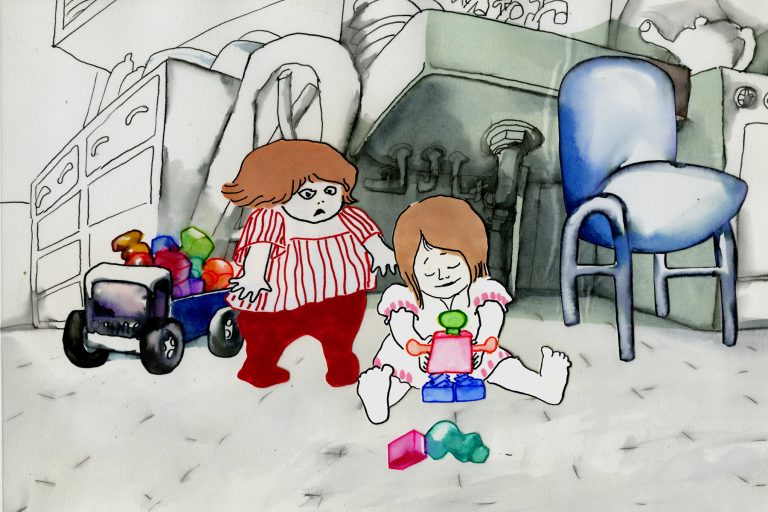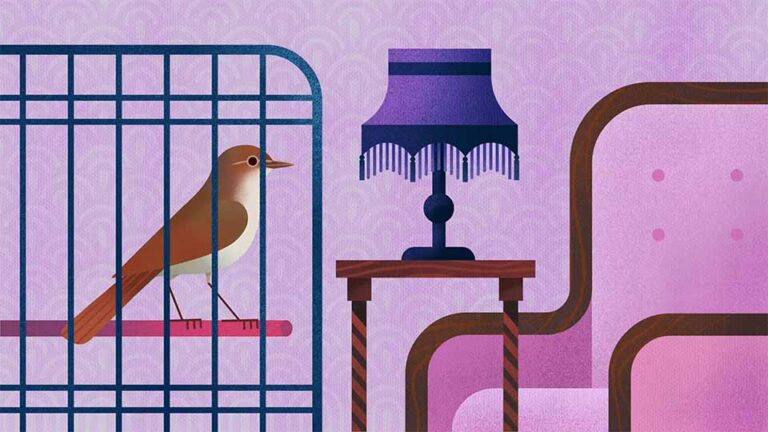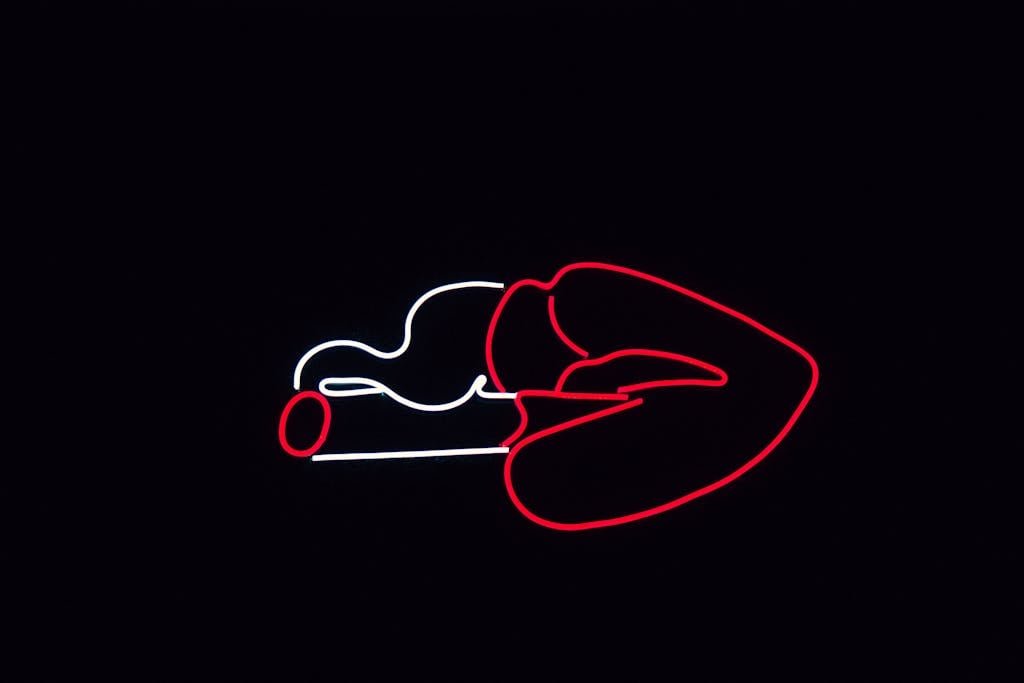In the film, Jérôme, recently deceased, arrives in the afterlife looking to find out what became of his wife Maryline after she passed away. When heaven’s phone book leads him to her answering machine, Jérôme sets off on a trans-paradisal journey to find his dearly departed.
After crossing through numerous specific versions of utopia in which several kind characters share gifts with him, Jérôme finally tracks down Maryline, only to learn that she took their vow “until death do us part” quite literally and is not at all interested in giving up the new afterlife she’s made for herself.
Additional praise should also go to composers Anna Cordonnier and Amandine Robillard, who put together a soundtrack that fits in well with the shifting emotions shared by Jérôme and the viewer as his journey progresses.
The film’s pastel color palette and shifting proportions are as playful as its comedic conceit. While the short’s visual have a strong Sixties vibe à la Peter Max, Heinz Edelmann, and Yellow Submarine, the short is in no way derivative and succeeds in expressing a style that’s all its own. Each version of heaven has a unique visual appeal and aesthetic that fits into the larger look and feel of the full short.






